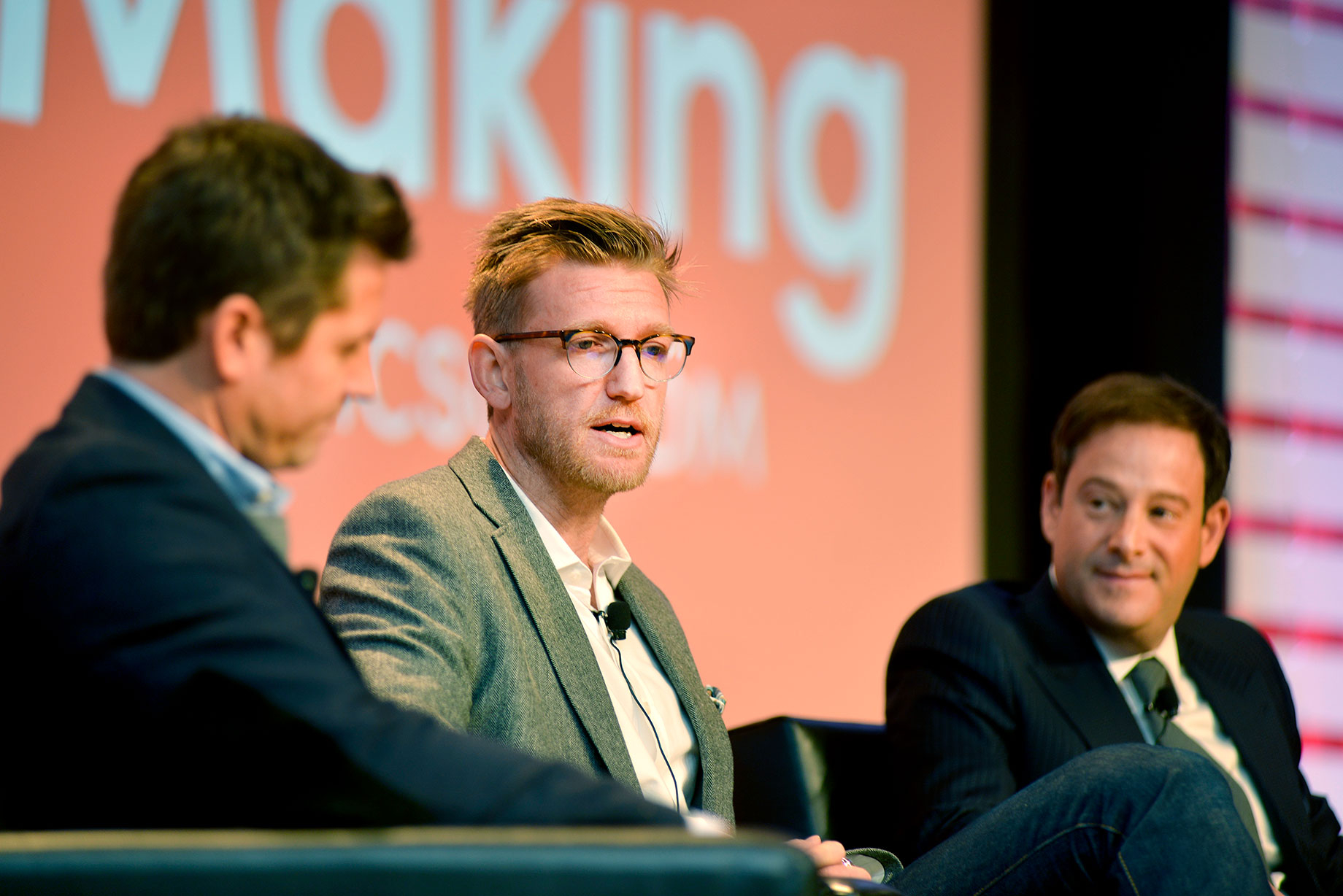Think retailing is hard? Try doing it without physical stores, said executives from Bluemercury, Shinola and Warby Parker, speaking at ICSC’s New York Deal Making show on Wednesday. Stores are essential to success, said representatives of the three in a discussion moderated by Scott Galloway, a professor of marketing at New York University’s Stern School of Business and the founder of both RedEnvelope and Prophet.

Chris Hull chief merchandising officer at Shinola
“We believe that our physical stores are our most valuable asset,” said Barry Beck, COO of Bluemercury, the cosmetics, skin-care and spa chain he co-founded with his wife, Marla, in 1999. The retailers that “embed themselves” in the community are the ones that will succeed, he said. “Fifty percent of our customers come in for advice,” as opposed to a product, he noted. Bluemercury, which Macy’s acquired in 2015, opened 40 stores this year and plans to open that many or even more in 2018, Beck said. The vast majority of the chain’s urban customers come from within a five-block radius of its stores. Thus, each of the chain’s stores is a local retailer in the mind of its clients, he said.
Warby Parker sold its eyeglasses online only when it launched in 2010, but now the retailer operates some 60 stores, noted Kyle Ashley, the company’s director of retail.
“We’ve already beaten Amazon at their own game”
Amazon.com is great at delivering merchandise fast, but it is not so great at building up brand, said Chris Hull, chief merchandising officer at Shinola, which manufactures watches, bicycles and accessories in Detroit and which now has about 30 stores across North America and also sells products through other retailers overseas. Face-to-face interaction with consumers is essential, whether a retailer is looking for real estate or selling product, said Hull. “I don’t think anything can replace spending time in neighborhoods and talking to consumers,” he said.
Bluemercury does a better job of delivering than even Amazon, said Beck. “It’s all about the last mile, and Bluemercury is already in the last mile,” he said. “We’ve already beaten Amazon at their own game.”
But though physical retail is king to all three retailers, each had a word of advice for landlords. It is insufficient merely to fill every space in a center, said Beck; landlords must pay close attention to who their tenants are. “You really need to build a community,” he counseled.
Landlords should also make the leasing process a lot simpler and more transparent and efficient, especially now that they deal with increasing numbers of new concepts unfamiliar with the world of real estate. “Why does it take five months,” challenged Warby Parker’s Ashley, “to negotiate a lease?”
By Edmund Mander
Director, Editor-In-Chief/SCT


